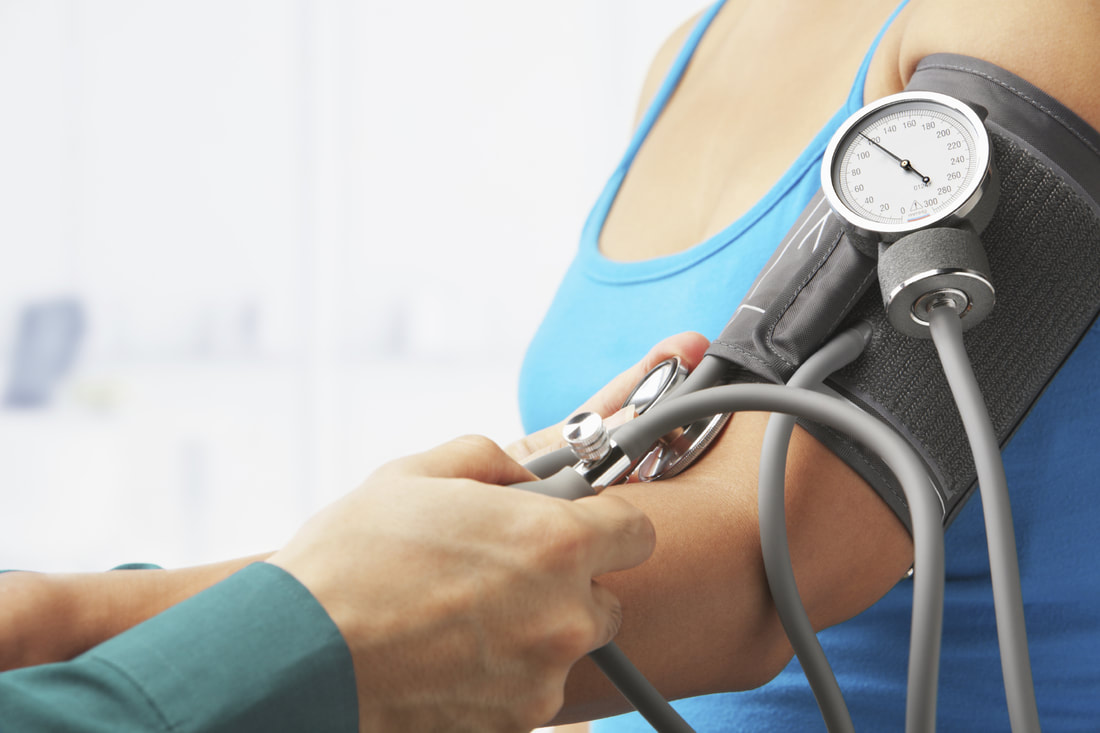|
For years together, hypertension was classified as a blood pressure reading of 140/90 mm Hg or higher, but 2017 medical guidelines propose people who have a BP reading of 130/80 mm Hg or higher as having hypertension. This does not mean that, the new set of people with BP face dangerous health risks or physicians should put them on high dose medications immediately. The guideline has been implemented with the sole purpose of preventing stroke, heart attacks and cardiac problems through early action, such as a combination of lifestyle change and medical intervention to control BP. New Blood Pressure Categories in Adults
As the guideline decreases the cut point for defining high BP, more people will be classified as having hypertension with the unhealthy lifestyle they are leading. Effective lifestyle modifications can help prevent or manage high blood pressure. For instance, a 4.5-kilogram drop in weight of an individual results in a 5-mm Hg reduction in blood pressure in an individual with high BP. Such changes are possible with increased physical activity and reduced sodium intake as well.
According to the new guidelines, individuals falling into the 130-139 mm Hg or 80-89 mm Hg category do not require anti-hypertensive medication to treat their high BP. Following a DASH diet rich in fruits and vegetables, staying on an ideal body weight, engaging in 30 minutes of physical activity at least 5 times a week and restricting alcohol consumption (2 drinks for men and 1 drink in the case of women) are lifestyle changes that can reduce systolic BP by approximately 4 to 11 mm Hg in patients with hypertension. For one-kilogram reduction in body weight, one can expect a 1 mm Hg BP reduction. BP-lowering medications should be used based on the stage of hypertension, a person’s medical history or his/her risks for cardiovascular diseases. Self-Monitoring Blood Pressure BP patients are recommended to measure blood pressure levels outside clinical settings to confirm hypertension as clinical measurements are almost always higher than ambulatory or at-home BPs. Correcting unhealthy lifestyle practices is the primary step any individual with elevated BP levels should take. A registered dietitian nutritionist is the apt person to guide you about nutritious eating habits, daily physical exercise and improve your physical well-being. Visit the website www.firsteatright.com to get in touch with such reputed RDNs who can change your lifestyle, for the better. Comments are closed.
|
AVOID FRAUD. EAT SMART.+91 7846 800 800
AuthorDietitian & Nutritionist Dr. Nafeesa Imteyaz. Archives
July 2024
Categories
All
Dr. Nafeesa's Blog @blogspot |
- Home
- Written Testimonials
- Consult
- Clinics
- Blogs
-
Diet & Nutrition
- Diabetes Reversal
- IVF IUI not needed for PCOS PCOD Infertility
-
Medical Nutrition
>
-
Disease & Conditions
>
- Infertility | PCOS
- Diabetes Mellitus
- Cholesterol
- Hypothyroid
- Kidney Problems
- Hypertension
- Cardiovascular Diseases
- Liver Diseases
- Gastro intestinal disorder
- Cancer
- Metabolic Disorders
- Orthopedic Disorders
- Eating Disorders
- Dietary Recall
- Weight Record Filled By Clients
- Online Payment Transaction Details
- Online Clients Weight Check Form
- Our Program Package Service Charges
- Weight Record 2017 Clients
- Measurements sent by Clients
- Terms & Conditions Of Payment
- Thanks. Your Form is Submitted
- Video Testimonials
- Lifestyle & Wellness
- Lifestyle & Wellness Blog
- Allergy & Intolerance
- Weight Loss / Gain
- Weight Loss / Slimming Blog
-
Disease & Conditions
>
- Life Cycle Nutrition >
- Sports Nutrition >
- Integrity in Nutrition
- Knowledge Centre
© COPYRIGHT 2022. ALL RIGHTS RESERVED. FRST HEALTHCARE PVT LTD.
Dr. Nafeesa Imteyaz of First Eat Right clinic, is the Best Dietitian Nutritionist in Bangalore. Best Dietitian Nutritionist in Pune. Best Dietitian Nutritionist in Hyderabad. Best Dietitian Nutritionist in Chennai. Best Dietitian Nutritionist in Mumbai. Best Dietitian Nutritionist in Delhi. Best Dietitian Nutritionist in Kolkata.


